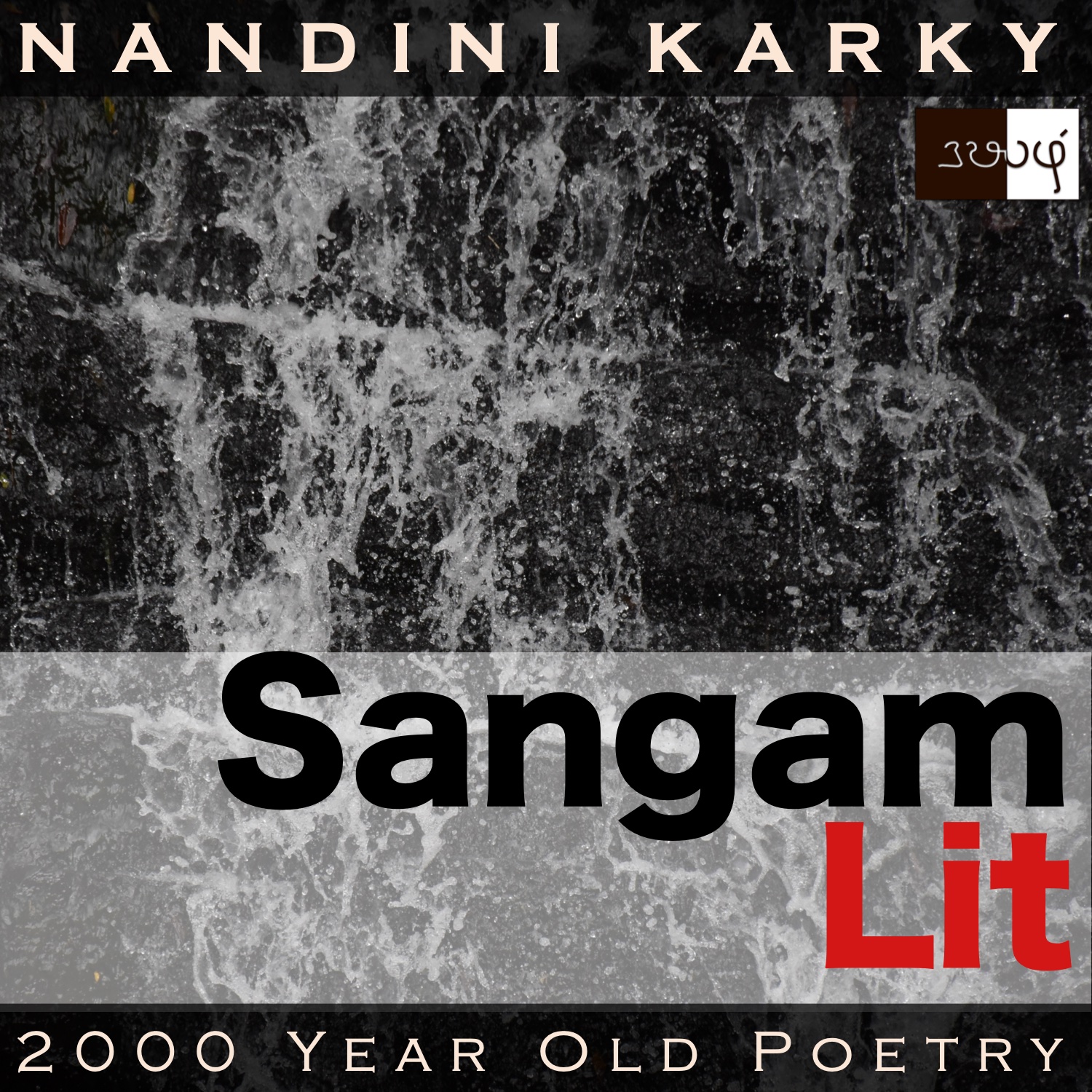Podcast: Play in new window | Download
Subscribe: Apple Podcasts | Spotify | Amazon Music | Android | iHeartRadio | TuneIn | RSS | More

In this episode, we perceive the acceptance of a man’s request for reconciliation, as depicted in Sangam Literary work, Kurunthogai 106, penned by Kabilar. Set in the mountains of ‘Kurinji’, the verse speaks in the voice of the lady to her confidante, conveying that she is appeased by the man’s message.
புல் வீழ் இற்றிக் கல் இவர் வெள் வேர்
வரை இழி அருவியின் தோன்றும் நாடன்
தீது இல் நெஞ்சத்துக் கிளவி நம் வயின்
வந்தன்று-வாழி, தோழி!-நாமும்
நெய் பெய் தீயின் எதிர்கொண்டு,
”தான் மணந்தனையம்” என விடுகம் தூதே.
‘Flowing from above’ is the stance of this verse. Illustrating this concept, appears the opening words ‘புல் வீழ் இற்றி’ meaning ‘the white fig tree with its downward extending thin aerial roots’. Thereafter, ‘வரை இழி அருவி’ meaning ‘cascade flowing down from the mountain ranges’ yet again talks about this descending flow. ‘தீது இல் நெஞ்சத்துக் கிளவி’ mentions ‘words about a heart, not at flaw’ and hints at a message received about someone. Although the phrase ‘நெய் பெய் தீ’ which would be understood in contemporary language as ‘the fire into which ghee is poured’ and may bring upon images of ceremonial fire, one should remember that the word ‘நெய்’ was used for all forms of ‘oil’, why even ‘fish oil’, and therefore, it should be appreciated more along the lines of the English phrase ‘adding fuel to fire’. The feelings of a bride or groom at the moment of their marriage is captured by the phrase ‘தான் மணந்தனையம்’ meaning ‘as I was when I married him’. Ending with the words ‘விடுகம் தூதே’ meaning ‘send across a message’, the verse welcomes us to listen to this tale of an impending reunion.
A flawless heart and fuelled fire shine in this one! The context reveals that the man and lady were leading a happy married life when the man took to keeping the company of courtesans. After a while, the man realises the error in his ways and wishes to make amends with the lady of his house and so, he sends word through a messenger. Hearing the words of the messenger, the lady says to her confidante, “Slender white aerial roots of the ‘Itri’ spread on mountain rocks and appear like a cascade falling from the peaks in the man’s mountain country. A message from his heart speaking about his faultlessness has come our way. May you live long, my friend! I too should accept it, akin to a fire fed with oil, and send a message saying, ‘I am of the same state of mind as I was when I married him’!” With these words, the lady informs her confidante that she has accepted the man’s words and instructs her friend to send a response indicating this acceptance.
What do these downward flowing elements signify in this verse? The lady starts by describing a white fig tree’s slender aerial roots that spread on the rocks of the ranges. She equates this image to that another element in the land flowing downward and that is a waterfall that descends from the mountain peaks. Mentioning that precise and perfect placement of comparable elements, the lady says that’s how the man’s country appears. Then, she turns to talk about how the words received from this man talking about his faultless heart have come to their attention. After considering this, she goes on to mention her plan of action, which is to face this situation like a fire, on which oil is poured, and send a reply that she has the same feelings for the man as when he married her!
Liquids pour down and yet the fire burns bright! In the imagery of thin roots spreading downwards, the lady acknowledges how the man has come down from his haughty state of rejecting her and sent those little words as appeasement. The lady checks with her heart as to the effect those words produce. There, she sees the tiny fire of emotions that she felt the moment the man married her and notices how his words seemed to be like oil pouring down on this little fire, making those flames leap above and dance. Taking in this glowing image from her own heart, the lady decides that there is love left indeed to welcome the man back into her life. A verse that intricately illustrates a heart at the moment it’s weighing the words of an errant beloved and deciding to see the sparks of love still burning bright within!




Nice and different 😊